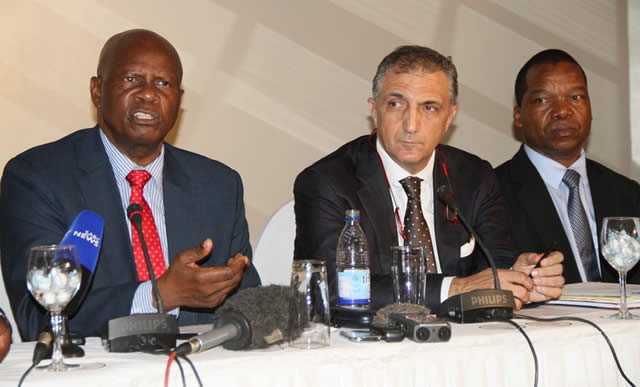No IMF bail out for Zimbabwe

By Farayi Machamire
The International Monetary Fund (IMF) has said it will not bail out Zimbabwe, unless the country comes up with a “credible plan” to pay its dues to other global financiers.

Zimbabwe — currently struggling to service its $1,8 billion-plus debt owed to various international financiers — desperately needs money to pay its civil service salaries, import food and alleviate a cash crunch, among other pressing needs.
“Access to IMF resources would first require the establishment of a credible plan to clear arrears with other International Finance Institutions and with bilateral creditors, in line with applicable Fund policies,” IMF said in a statement.
“It would also require implementing a strong reform agenda to restore economic stability and foster sustained and inclusive growth,” the IMF said.
The institution said “on October 20, 2016, Zimbabwe settled its overdue financial obligations to the Poverty Reduction and Growth Trust of the IMF”.
The country had been in continuous arrears since 2001, but has paid IMF about $107,9 million towards them.
However, following the clearance of arrears, and in line with IMF’s policies and procedures, the Bretton Woods’ executive board will consider a formal proposal to lift the remaining remedial measures imposed on Zimbabwe because of the arrears.
Information from the IMF indicates that the lifting of the remedial measures does not automatically provide Zimbabwe with access to new funding.
The southern African nation’s dire economic situation has triggered a series of unprecedented anti-President Robert Mugabe protests, as well as strikes by teachers, doctors and nurses over unpaid salaries.
At the moment, Mugabe’s government is desperate to re-engage with western multilateral institutions after years of isolation.
Zimbabwe plunged into economic chaos after Mugabe implemented a controversial land reform programme back in the late 1990s, which saw the seizure of white-owned commercial farms.
The land grabs, coupled with human rights abuses and disputed elections, saw western nations ostracise Zimbabwe and impose sanctions on Mugabe and other members of his ruling Zanu PF party. Daily News





